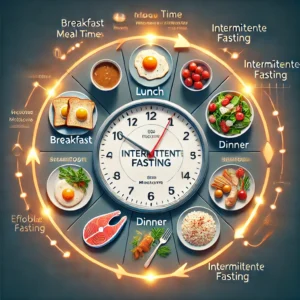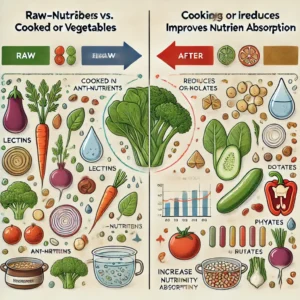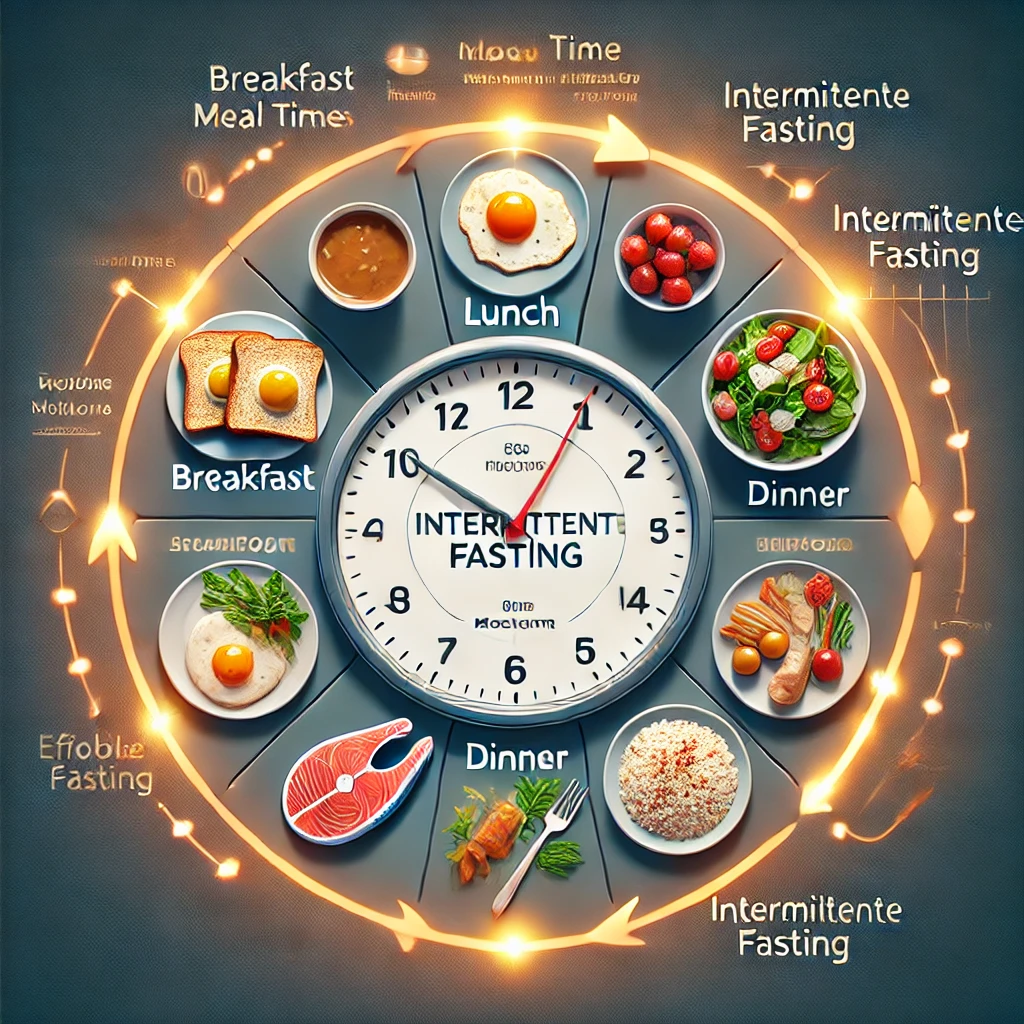Introduction
In the world of health and wellness, there is a never-ending stream of information about nutrition, diets, and foods that claim to be the key to better health. While some of these tips may be well-known, others are often overlooked or misunderstood. These lesser-known facts about nutrition can have a profound impact on how you approach your diet, making it easier to reach your health and fitness goals. In this article, we’ll uncover five surprising, little-known facts about nutrition that could change the way you think about food and its role in your body.
1. Eating More Fat Can Actually Help You Lose Fat
For years, fat has been villainized in the world of nutrition. Low-fat diets dominated the scene for decades, with the idea that reducing fat intake would lead to weight loss and better health. However, recent research has revealed that not all fats are created equal, and in fact, consuming healthy fats can be beneficial for weight management.
Healthy fats, like those found in avocados, nuts, seeds, and olive oil, play a crucial role in maintaining good health. They help support brain function, promote hormone production, and assist in the absorption of fat-soluble vitamins like A, D, E, and K. More importantly, healthy fats can help keep you full longer, reducing the likelihood of overeating and snacking on unhealthy foods.
The ketogenic diet, which is based on high-fat, moderate-protein, and low-carbohydrate intake, has gained popularity for its ability to promote fat burning. By fueling the body with fat instead of carbohydrates, the body enters a state of ketosis, where it burns stored fat for energy. So, if you’re looking to change your diet, consider adding more healthy fats rather than cutting them out entirely.
2. The Timing of Your Meals Is Just as Important as What You Eat
Many people focus on the types of food they eat, but the timing of those meals can be just as important for your overall health. Recent studies have shown that when you eat can affect your metabolism, weight management, and energy levels.
Eating in a pattern known as intermittent fasting has been shown to have several benefits, including improved insulin sensitivity and fat loss. Intermittent fasting involves cycling between periods of eating and fasting, typically with a window of 8-10 hours for eating and a fasting period of 14-16 hours. This method allows your body to burn fat more effectively and may also improve cellular repair processes.
Another critical aspect of meal timing is eating breakfast. Skipping breakfast or eating it too late in the day can negatively affect your metabolism. Studies have found that consuming a balanced breakfast within an hour of waking up can help regulate blood sugar levels and boost metabolism. So, it’s not just what you eat but also when you eat that matters.

3. Eating Fiber Can Help Your Body Detoxify Naturally
Fiber is often praised for its ability to promote digestive health and regulate bowel movements, but it also plays an important role in detoxifying the body. Soluble fiber, which is found in foods like oats, beans, and fruits, can help bind to toxins in the body and facilitate their removal through the digestive system.
Fiber also supports the health of the gut microbiome, which is essential for the detoxification process. The gut microbiome is made up of trillions of bacteria that help break down food, produce vitamins, and protect against harmful pathogens. A healthy, balanced microbiome can enhance the body’s ability to filter out toxins and waste.
In addition to its detoxifying properties, fiber is crucial for maintaining blood sugar levels and lowering cholesterol. Studies have shown that a high-fiber diet can reduce the risk of heart disease, type 2 diabetes, and even certain types of cancer. By including more fiber-rich foods in your diet, you not only support your digestive health but also give your body the tools it needs to detoxify naturally.
4. Your Body Doesn’t Absorb All of the Nutrients in Vegetables
While vegetables are often seen as the ultimate health food, the truth is that not all of the nutrients in vegetables are easily absorbed by the body. Certain vegetables contain compounds known as “anti-nutrients” that can interfere with the absorption of vitamins and minerals. For example, substances like oxalates in spinach and phytic acid in beans can bind to minerals such as calcium, iron, and magnesium, preventing them from being absorbed efficiently.
However, this doesn’t mean you should avoid vegetables altogether. In fact, most vegetables are packed with essential nutrients, including vitamins, minerals, and antioxidants, that are beneficial for your health. The key is to consume a variety of vegetables and find ways to reduce the effects of anti-nutrients.
For instance, cooking vegetables can help break down some of the anti-nutrients, making the nutrients more bioavailable. Soaking beans and legumes can also reduce the levels of phytic acid, improving mineral absorption. If you’re eating raw vegetables, try pairing them with a source of healthy fat (like olive oil or avocado) to enhance the absorption of fat-soluble vitamins.

5. You Don’t Need As Much Protein as You Think
Protein is an essential nutrient for muscle growth, tissue repair, and overall body function, but most people consume far more protein than their bodies actually need. While protein is vital, excessive intake doesn’t necessarily translate into increased muscle mass or better performance.
The Recommended Daily Allowance (RDA) for protein is around 0.8 grams per kilogram of body weight, which is sufficient for the average adult. Athletes and those engaged in heavy physical activity may need slightly more, but the majority of people eat far more protein than this, especially with the popularity of high-protein diets and supplements.
Excess protein that isn’t used by the body for repair and growth is either burned for energy or stored as fat. Additionally, overconsumption of protein can strain the kidneys and liver over time, especially in people with pre-existing kidney issues. To support a balanced diet, focus on getting your protein from natural sources like lean meats, legumes, eggs, and plant-based proteins, and avoid going overboard with supplements.
Conclusion
The world of nutrition is constantly evolving, and it’s easy to get lost in the flood of new diets, trends, and expert advice. However, by understanding and embracing these little-known facts about nutrition, you can make informed decisions that positively impact your health. Whether it’s incorporating more healthy fats, adjusting your meal timing, or making small changes to the way you consume fiber and protein, these insights can help you craft a diet that supports your body’s needs in a sustainable way.
Remember, nutrition isn’t about extremes—it’s about balance. By taking these facts into account and applying them to your lifestyle, you can achieve a healthier, more vibrant life.
FAQs
-
Is it true that eating more fat can help with weight loss?
Yes, healthy fats can keep you fuller for longer, reducing the likelihood of overeating and helping your body burn fat for energy, especially when following a low-carb or ketogenic diet. -
What is intermittent fasting, and why is it beneficial?
Intermittent fasting involves cycling between periods of eating and fasting, which has been shown to improve metabolism, reduce insulin levels, and promote fat loss. -
How can I improve nutrient absorption from vegetables?
Cooking vegetables or soaking beans can help reduce anti-nutrients like phytic acid, improving the absorption of essential vitamins and minerals. -
How much protein do I actually need?
The RDA for protein is about 0.8 grams per kilogram of body weight for most adults. Overeating protein can have negative effects, especially if it exceeds the body’s needs. -
How does fiber help detoxify the body?
Fiber binds to toxins and helps remove them through the digestive system. It also supports gut health, which is essential for effective detoxification.
